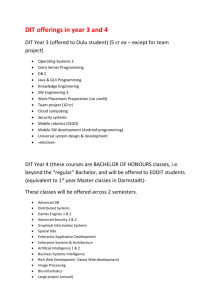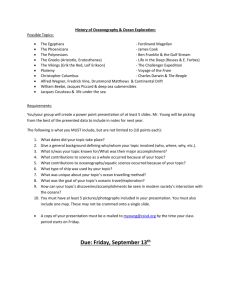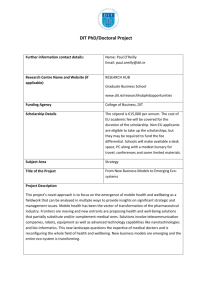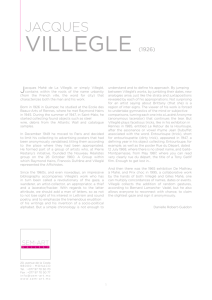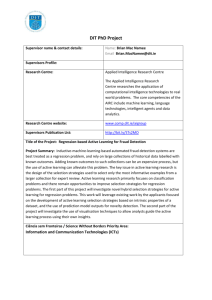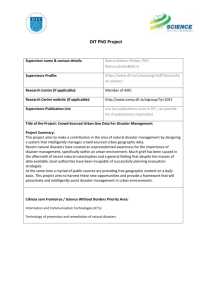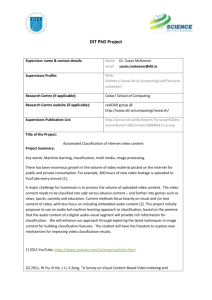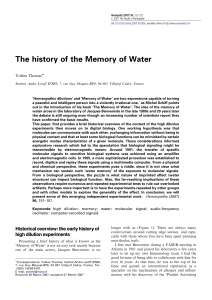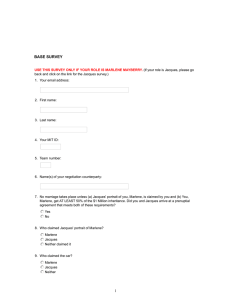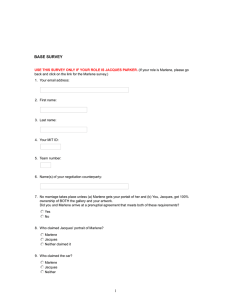Experiences and Outcomes ‘Jacques a dit’ game French version of Simon Says.
advertisement
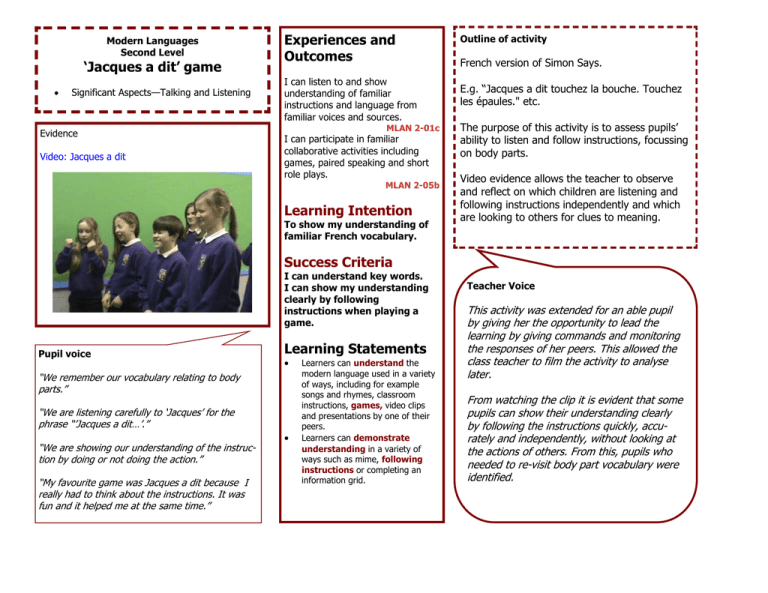
Modern Languages Second Level ‘Jacques a dit’ game Significant Aspects—Talking and Listening Evidence Video: Jacques a dit Experiences and Outcomes I can listen to and show understanding of familiar instructions and language from familiar voices and sources. MLAN 2-01c I can participate in familiar collaborative activities including games, paired speaking and short role plays. MLAN 2-05b Learning Intention To show my understanding of familiar French vocabulary. Outline of activity French version of Simon Says. E.g. “Jacques a dit touchez la bouche. Touchez les épaules." etc. The purpose of this activity is to assess pupils’ ability to listen and follow instructions, focussing on body parts. Video evidence allows the teacher to observe and reflect on which children are listening and following instructions independently and which are looking to others for clues to meaning. Success Criteria I can understand key words. I can show my understanding clearly by following instructions when playing a game. Pupil voice Learning Statements “We remember our vocabulary relating to body parts.” “We are listening carefully to ‘Jacques’ for the phrase “’Jacques a dit…’.” “We are showing our understanding of the instruction by doing or not doing the action.” “My favourite game was Jacques a dit because I really had to think about the instructions. It was fun and it helped me at the same time.” Learners can understand the modern language used in a variety of ways, including for example songs and rhymes, classroom instructions, games, video clips and presentations by one of their peers. Learners can demonstrate understanding in a variety of ways such as mime, following instructions or completing an information grid. Teacher Voice This activity was extended for an able pupil by giving her the opportunity to lead the learning by giving commands and monitoring the responses of her peers. This allowed the class teacher to film the activity to analyse later. From watching the clip it is evident that some pupils can show their understanding clearly by following the instructions quickly, accurately and independently, without looking at the actions of others. From this, pupils who needed to re-visit body part vocabulary were identified.
